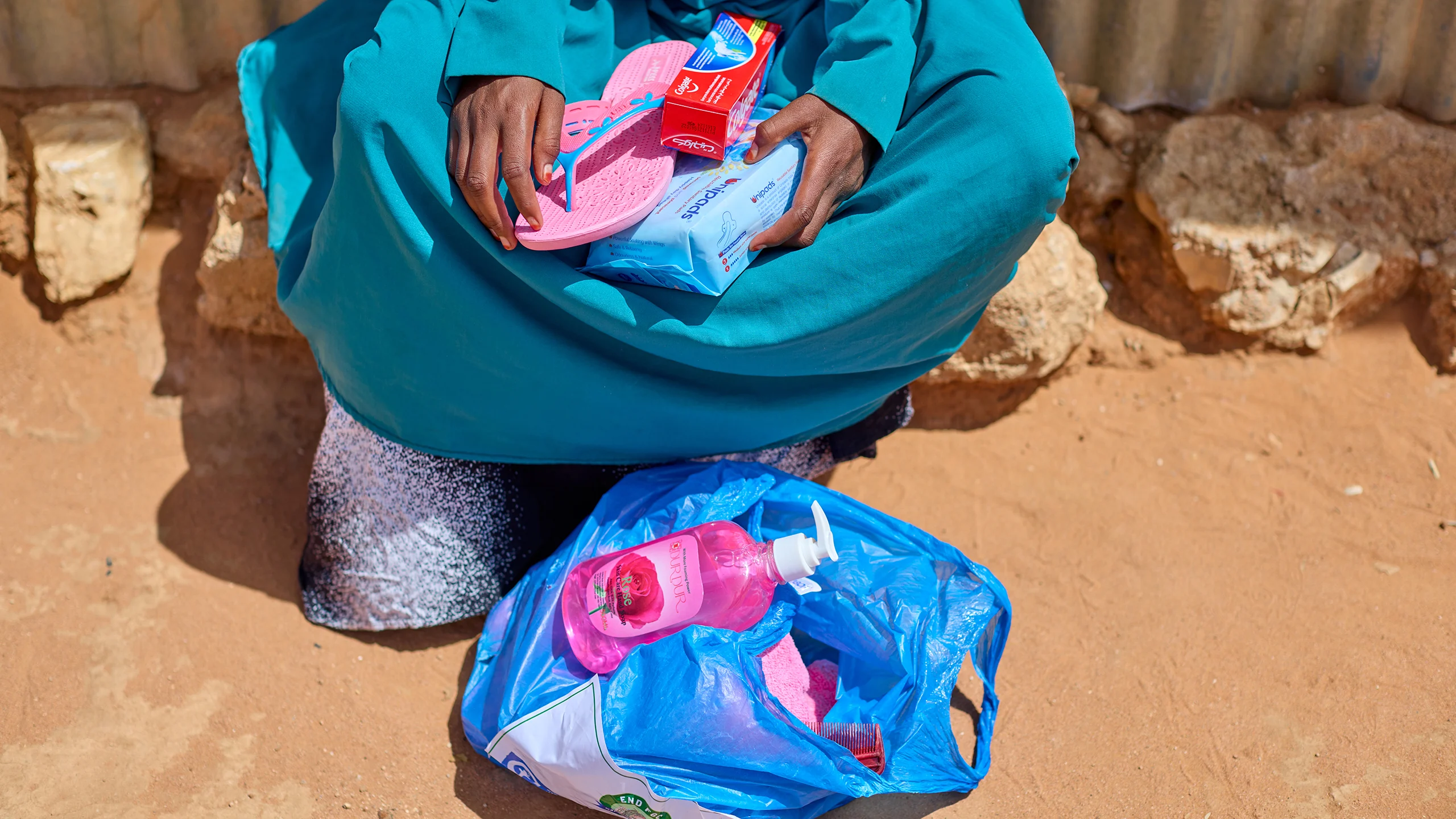
Young Australians speak out about the impact of the cost of living crisis on their menstruation and sexual and reproductive health.
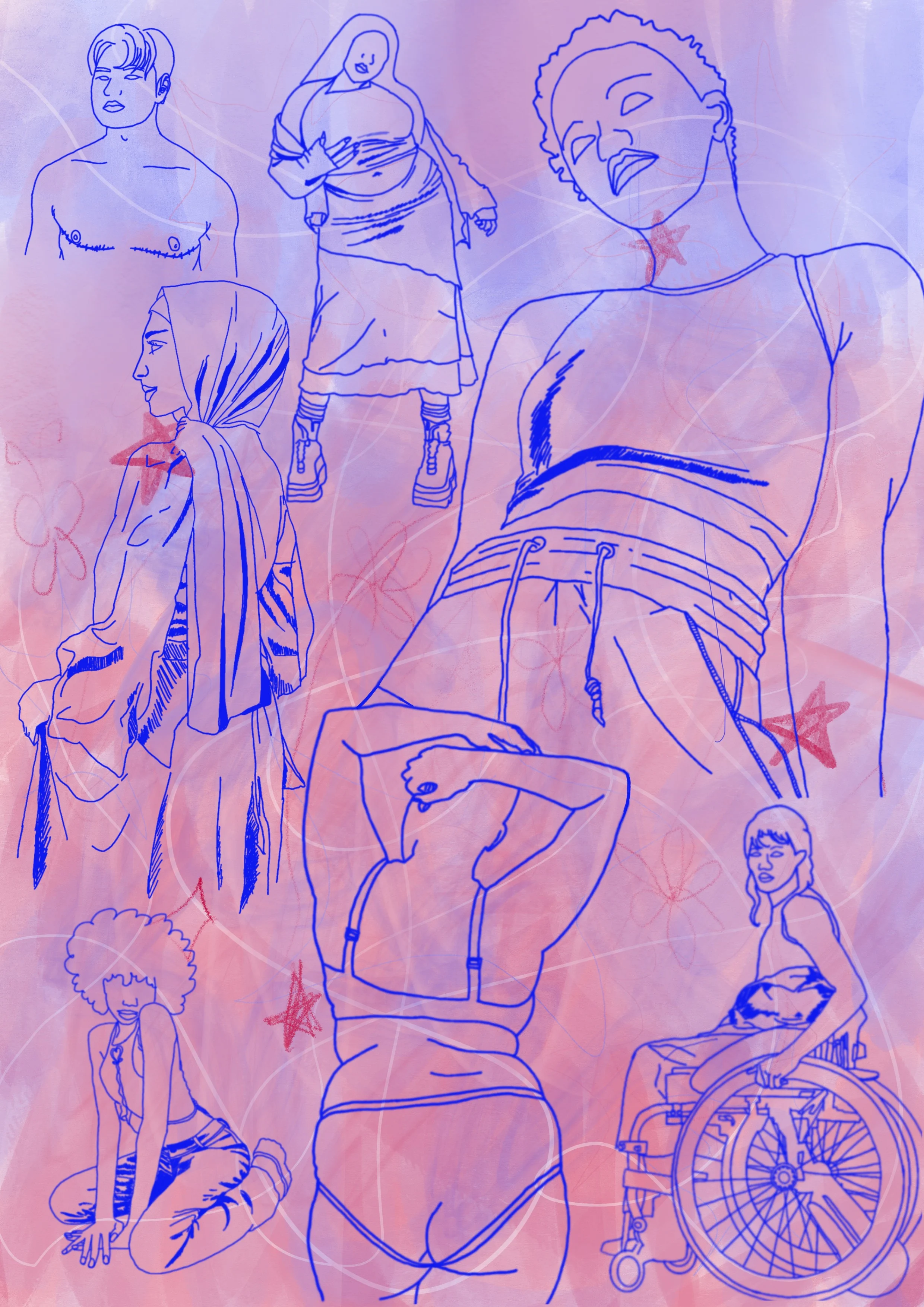
On any given day, around 300 million women and girls globally will have their periods. Menstruation is a healthy, natural and essential part of the human reproductive system. It is not a choice but a bodily function that approximately half of the population – adolescent girls, along with transgender boys and non-binary persons who menstruate – experiences, an average of once per month, for around 40 years of their lives.
Periods don't stop when times are tough, or in an emergency. But all too often in crisis situations, girls, women and people who menstruate struggle to manage their periods with dignity, as access to basic supplies and essential health services becomes limited.
Australia is in the grip of a crushing cost of living crisis, and it is young people who are bearing the brunt of it. A recent cost of living report found that 90% of Generation Z – young people born between 1997 and 2009 - have reduced their spending to cope with the cost of living, compared to only 59% of Baby Boomers. Likewise, 70% of Generation Z also admitted to feeling financially stressed due to inflation, while only 29% of Baby Boomers felt the same way.
Earlier this month, an interim report from a Senate inquiry investigating poverty in Australia released detailed evidence of welfare payments being insufficient to meet the cost of essential items, including menstrual health products. The inquiry heard evidence of “dehumanising poverty”, including women using rags because they could not afford pads or tampons.
Wherever there is poverty, there is period poverty, and this can have profound and lifelong impacts on adolescent girls’ lives: it can prevent them from going to school and deny them an education; stop them from playing sports; significantly affect their mental health and wellbeing; impact their employment; and prevent them from accessing basic necessities such as food or electricity.
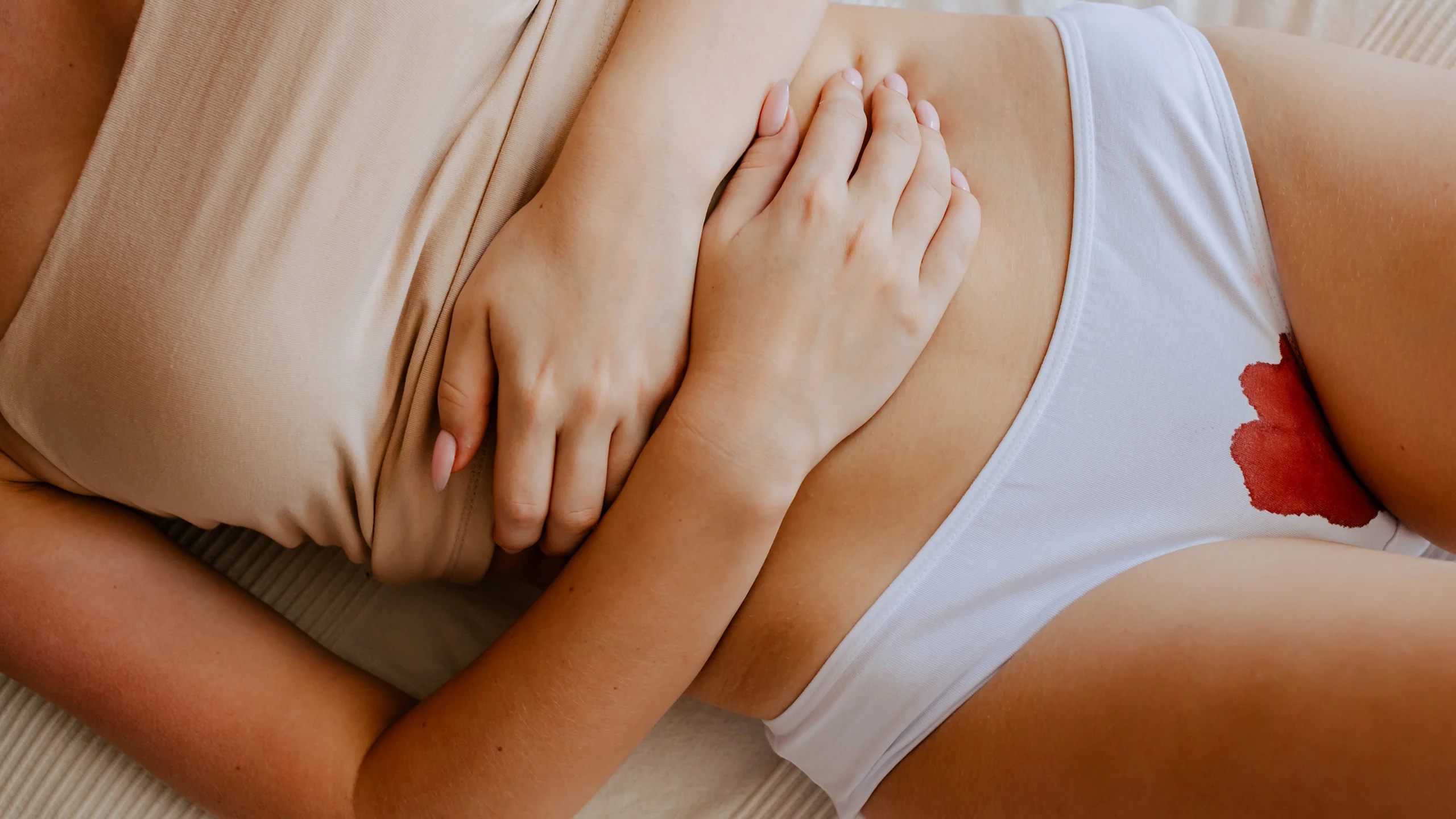
In April 2023, Plan International Australia (PIA) commissioned YouGov to collect data on the cost of living crisis and period poverty amongst 500 Australian people who menstruate, in both city and regional areas, aged 18-42. PIA designed the survey together with Sexual and Reproductive Health Rights experts; Water, Sanitation and Hygiene (WASH) professionals; and Gender in Emergencies specialists.
This Australian data forms part of a wider, global report and builds on PIA’s previous research into how people managed their periods during the COVID-19 pandemic.
The resulting report, A Tough Period, has found that the cost of living crisis has significantly exacerbated period poverty in Australia – particularly amongst the Gen Z population – and there’s no relief in sight.
Almost 6 in 10 Gen Z and Millennial women are finding it more difficult to pay for menstrual health products than they were before the current cost of living crisis.
The figure for Gen Z alone is 64%.
More than half of Gen Z and Millennial women are finding it more difficult to pay for menstrual pain management medication/treatment than before the current cost of living crisis.
Gen Z are feeling it more, with 57% finding it more difficult, and those with lower household incomes are also finding it much tougher.
When asked how difficulty in paying for menstrual health products and/or menstrual pain management medication is impacting on other areas of their life,
37% of respondants indicated it was effecting their mental health and well-being.
This was particularly an issue for those outside of the capital cities (48%), those not working (45%), those renting (46%), and those on household incomes under $50K (47%).
More than 1 in 4 of Gen Z respondents said that the difficulties they now experienced in paying for period products and period pain management had impacted on their sexual relationships.
16% of Gen Z people who menstruate said it was impacting their education or their workplace participation .

We asked our Plan International Australia youth activists to validate and respond to the findings in the A Tough Period report.
As a result of the cost of living crisis, young people are using cheaper menstrual health products, changing them less often, and sometimes, going without products at all. This is having a significant impact on young people’s physical and mental health and wellbeing.
An Australian charity recently shared that a packet of pads in Katherine in the NT was going for $25 a packet. I don't know about you, but most people I know use two packets of pads each period cycle, and $50 per period is just frankly unaffordable.
In the Gen Z cohort surveyed, 15% said they were entirely dependent on donated period products from university student services or local charities to manage their menstruation. Others said they were reliant on parents or family members to purchase products for them.
Last year I was Women's Officer at my uni. The majority of contact I had from students was asking if we could have more free pads and tampons around the place. People were struggling to afford them. But, all the products were provided by the students, not from the uni. University staff are doing their best, but there’s not enough funding for these things.
In Australia, it is estimated that on average, a person who menstruates will spend $10,000 in their lifetime on period products such as pads and tampons – not including pain management.
If period products were free, this could give a young woman the ability to pay for:
A home deposit for a $500,000 property, for a young person taking advantage of a government first home buyer scheme.
A safe, second-hand car.
Half of the average HECS debt.
While we welcome the significant progress that has been made by state governments around Australia to make period products free in all state schools, we call on the Australian Government to follow in the footsteps of Scotland and make period products free for all via a Periods Products Act, that would distribute products to councils and local authorities who could provide free products to anyone who needs them.
2023 Plan International Australia youth activists
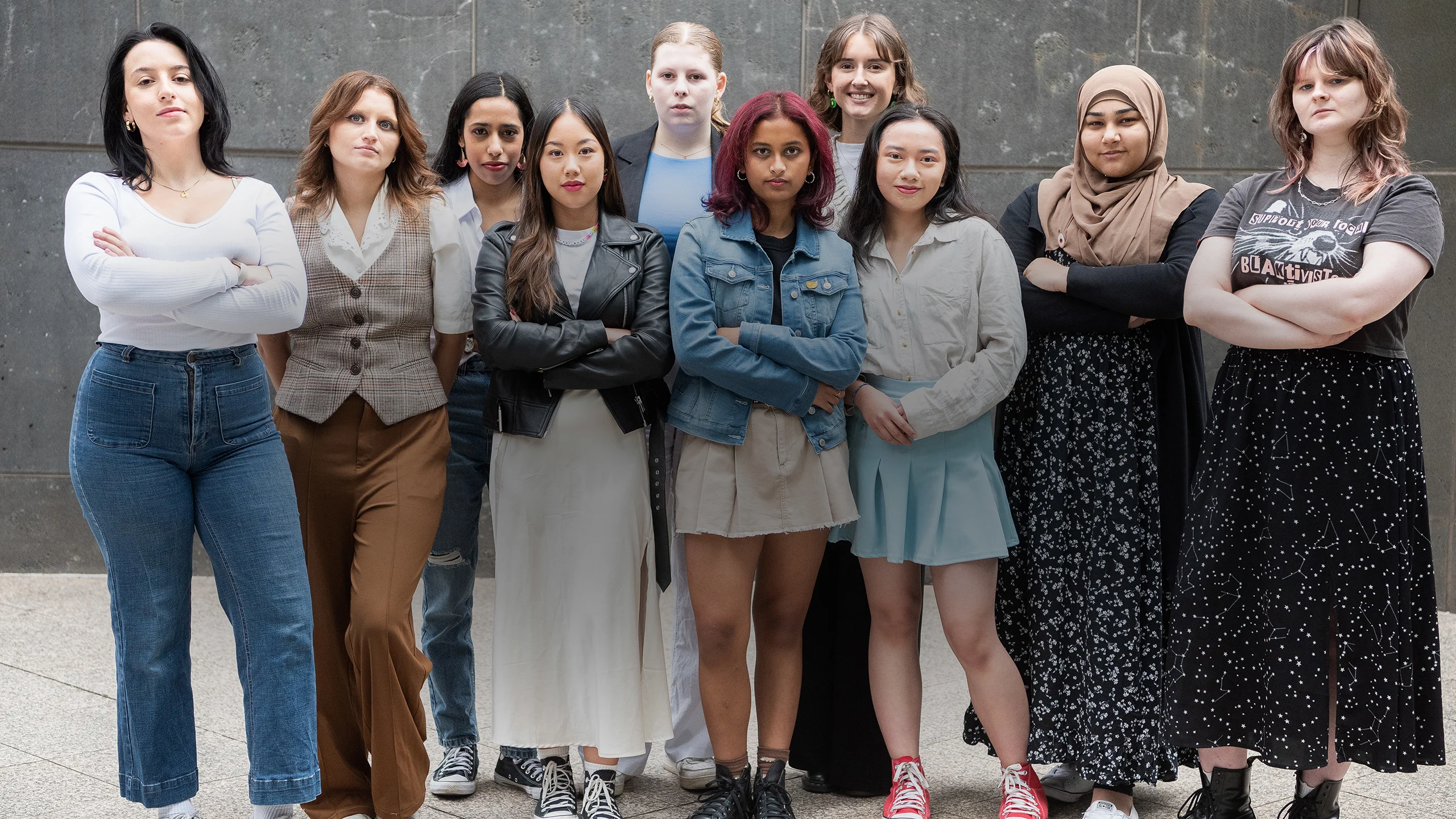
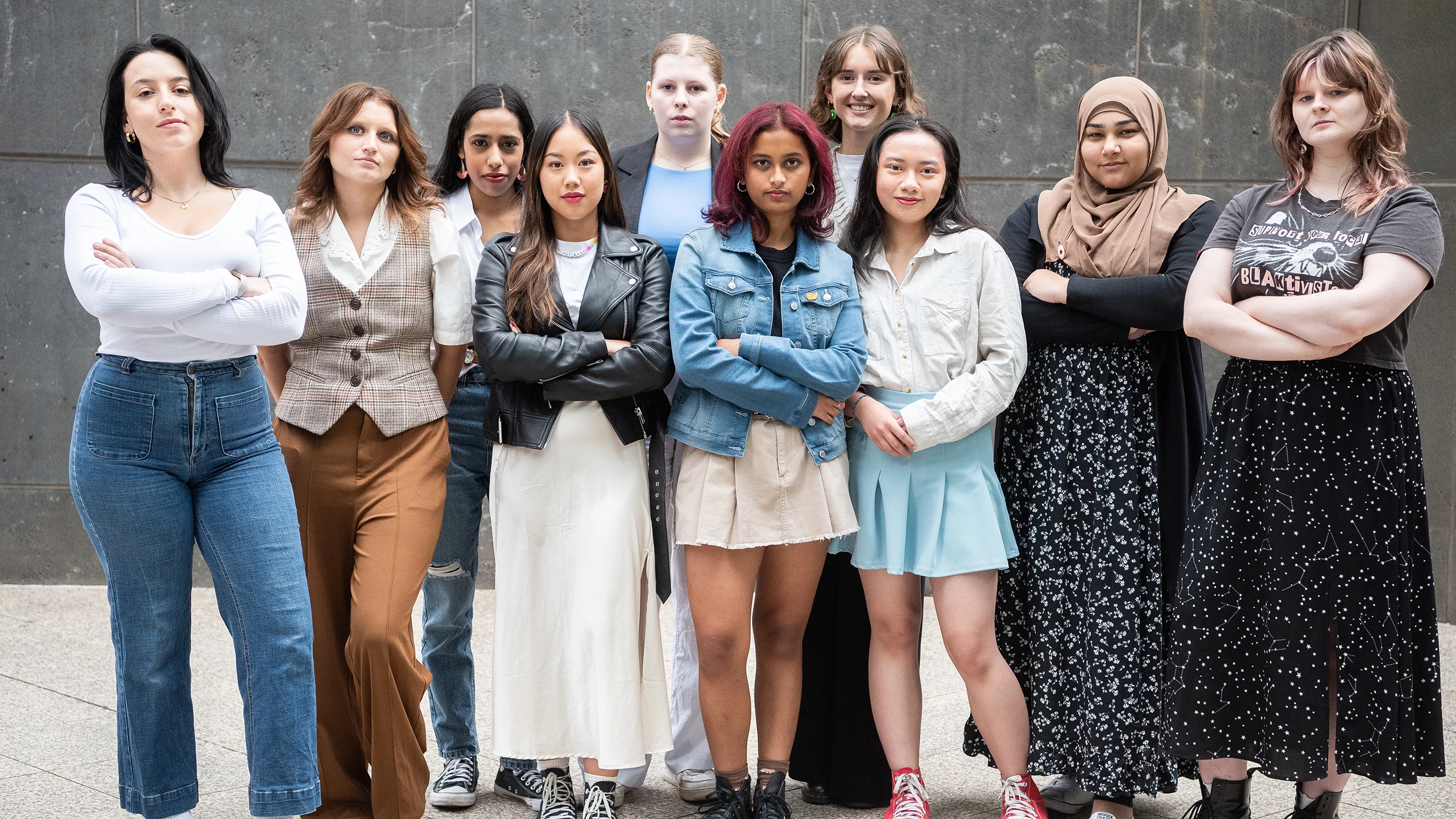
While we welcome the significant progress that has been made by state governments around Australia to make period products free in all state schools, we call on the Australian Government to follow in the footsteps of Scotland and make period products free for all via a Periods Products Act, that would distribute products to councils and local authorities who could provide free products to anyone who needs them.
2023 Plan International Australia youth activists
The $10,000 figure scares me. As someone who's currently unemployed due to my disability, I don't have $10,000 across my lifetime just to spare.
The youth activists spoke strongly about the need for menstrual products to be free for people of all gender identities who menstruate, and how LGBTIQ+ people may experience additional barriers to accessing menstrual health products, with negative impacts on their mental health.
If free menstrual products are provided, it’s often only in women’s bathrooms. It’s an awful situation to put a lot of gender diverse people in and it should really be an issue for everyone and should be provided in all bathrooms. And so we need to talk about all people who menstruate, not just women.
They also noted that migrants and culturally and linguistically diverse (CALD) communities faced additional barriers to managing their periods safely, affordably and without shame. Worryingly, young people – particularly students - from these communities highlighted in our focus group research that a lack of access to free healthcare, coupled with cost of living pressures, meant they were unable to afford to see a doctor to treat endometriosis, polycystic ovary syndrome or other sexual and reproductive health concerns.
Moving to Australia and being a migrant, you don't actually have the same accessibility to insurance. So I didn't have Medicare for the first couple of years I was here. And so if I had to get a blood test or something, that would cost me exponentially more than anyone else who lived in Australia. A lot of people experiencing endometriosis or polycystic ovary syndrome need to see doctors regularly, and without Medicare, that’s a debilitating cost to endure. That has a great impact on mental health as well, not being able to afford that sort of care.
"Over the last few years in particular, I have really tried hard to de-stigmatise periods for myself, but there are always those elements of 'ohh if I'm not changing my period products enough, will I smell? Will there be leakages?'
That’s going on the back of your mind. Having those subliminal thoughts really impacts you over the course of the day. If your period lasts longer than a week, that is a quite a long amount of time to be worrying about something in the back of your mind, which you wouldn't have to worry about if you had adequate access to menstrual products – or if you did not have a uterus."
Angelina - Plan International Australia youth activist
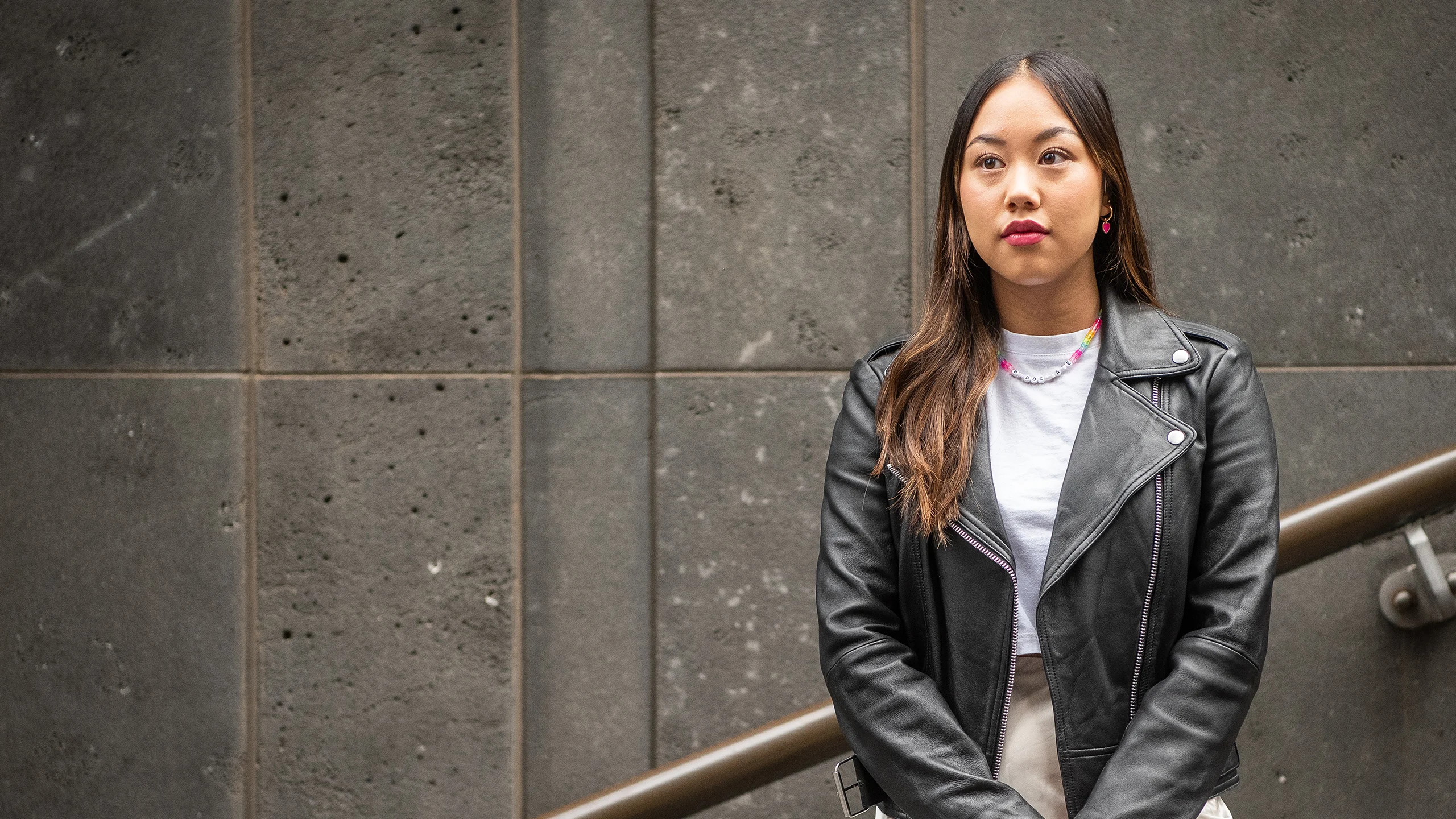
"Over the last few years in particular, I have really tried hard to de-stigmatise periods for myself, but there are always those elements of 'ohh if I'm not changing my period products enough, will I smell? Will there be leakages?'
That’s going on the back" of your mind. Having those subliminal thoughts really impacts you over the course of the day. If your period lasts longer than a week, that is a quite a long amount of time to be worrying about something in the back of your mind, which you wouldn't have to worry about if you had adequate access to menstrual products – or if you did not have a uterus."
Angelina - Plan International Australia youth activist

Spotlight on First Nations’ Experience

For First Nations young women, girls and gender diverse young people living in remote communities, the costs of menstrual health products are significantly higher than elsewhere. A packet of pads is reported to cost on average $10-15, and national charity Share the Dignity reports that remoteness can increase the cost of menstrual health products by 100%. There is also limited access to pain relief, and underwear and reusable menstrual products are often either not available, or also very expensive.
For First Nations people who menstruate, the cost-of-living crisis is amplified by more systemic barriers that impact the ability to access menstrual health products and pain management.
Lack of sufficient access to working taps, toilets, showers and bathrooms – all things that are essential to good menstrual health management - is also a critical issue facing First Nations people who menstruate in remote communities.
There is also a lack of appropriate and women/gender diverse friendly bathrooms in schools. It is reported that First Nations girls may miss school when on their periods, as they feel more comfortable changing their pads or tampons at home, or they may miss school due to embarrassment at having to use unhygienic alternatives because menstrual hygiene products are unaffordable.
For First Nations girls, young women and gender diverse young people, providing free or subsidised menstrual products is critical, but more systemic challenges need to be addressed, including lack of access to improved water and sanitation facilities and supporting menstrual health programs that are led and designed by First Nations community organisations.
Plan International Australia, together with the 10 youth activists who have contributed to this research, are calling for the following:
1. Funding to provide free menstrual health products in all public bathrooms.
It’s a requirement that public bathrooms provide toilet paper and hand soap, but why not menstrual health products? When over half the population require them, they are as critical as toilet paper and should be treated in the same way.
2. Subsidies for those doing it the toughest.
Menstrual products should be subsidised for those from low socio-economic status backgrounds and struggling the most with rising cost of living.
3. Information in health clinics.
Health clinics should be able to provide patients with information about where to access free menstrual products, so people who menstruate always know where they can go if they need.
4. Greater, and earlier education about periods in schools.
Addressing period shame and stigma helps address period poverty. Not having access to period products or suffering anxiety about leakage and bleeding can lead to period shame – which in turn can have a significant impact on a girls’ wellbeing and educational opportunities.
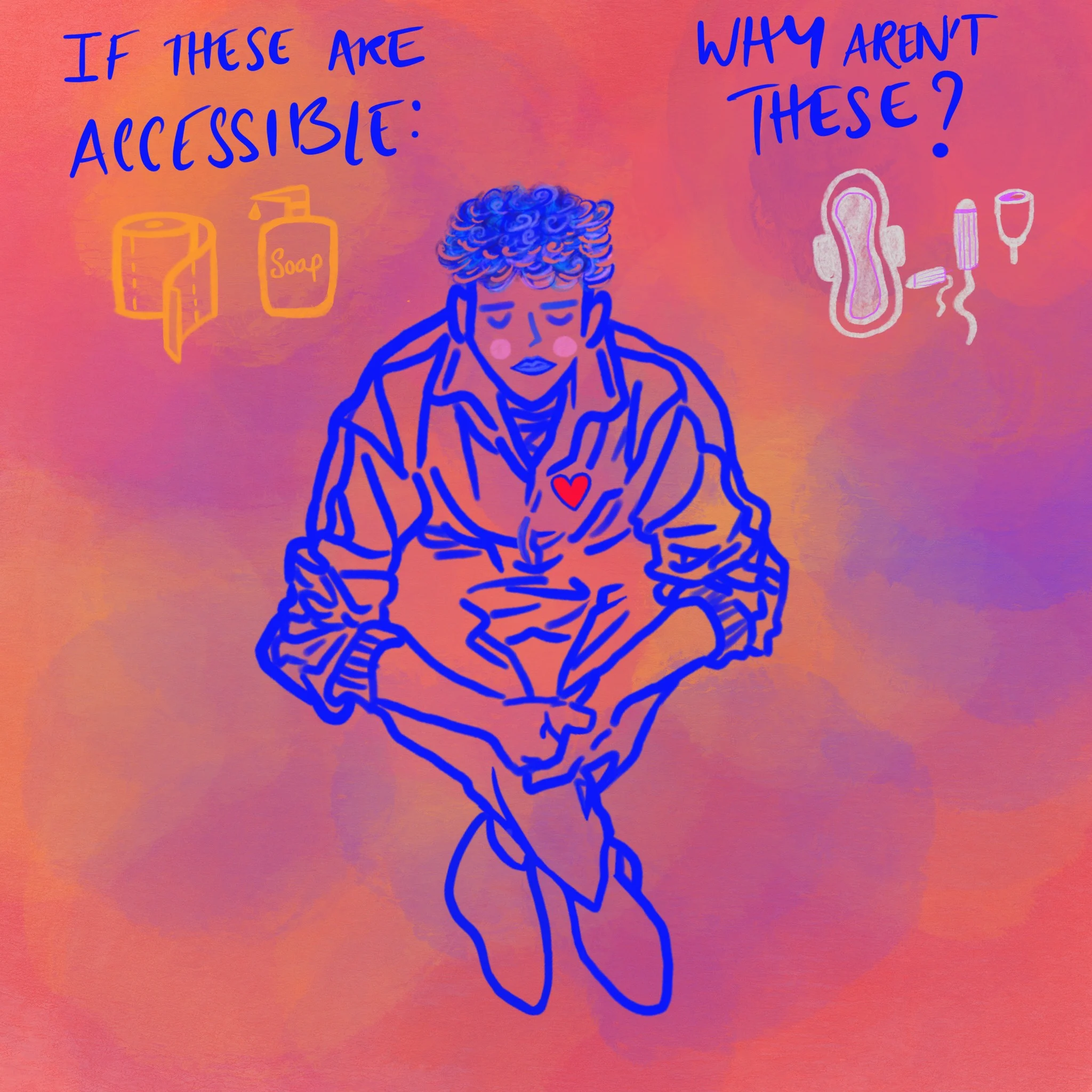
Plan International Australia is currently distributing dignity kits to communities in need all around the world. A Dignity Kit has all of the essentials people who menstruate need to manage their periods during a crises, from the global hunger crisis, to conflict settings and climate disasters. The kit includes menstrual pads, body soap, washing soap for clothes, toothbrushes, shampoo and toilet paper. You can pay it forward and purchase a dignity kit, which will help a girl manage her period.
a global perspective
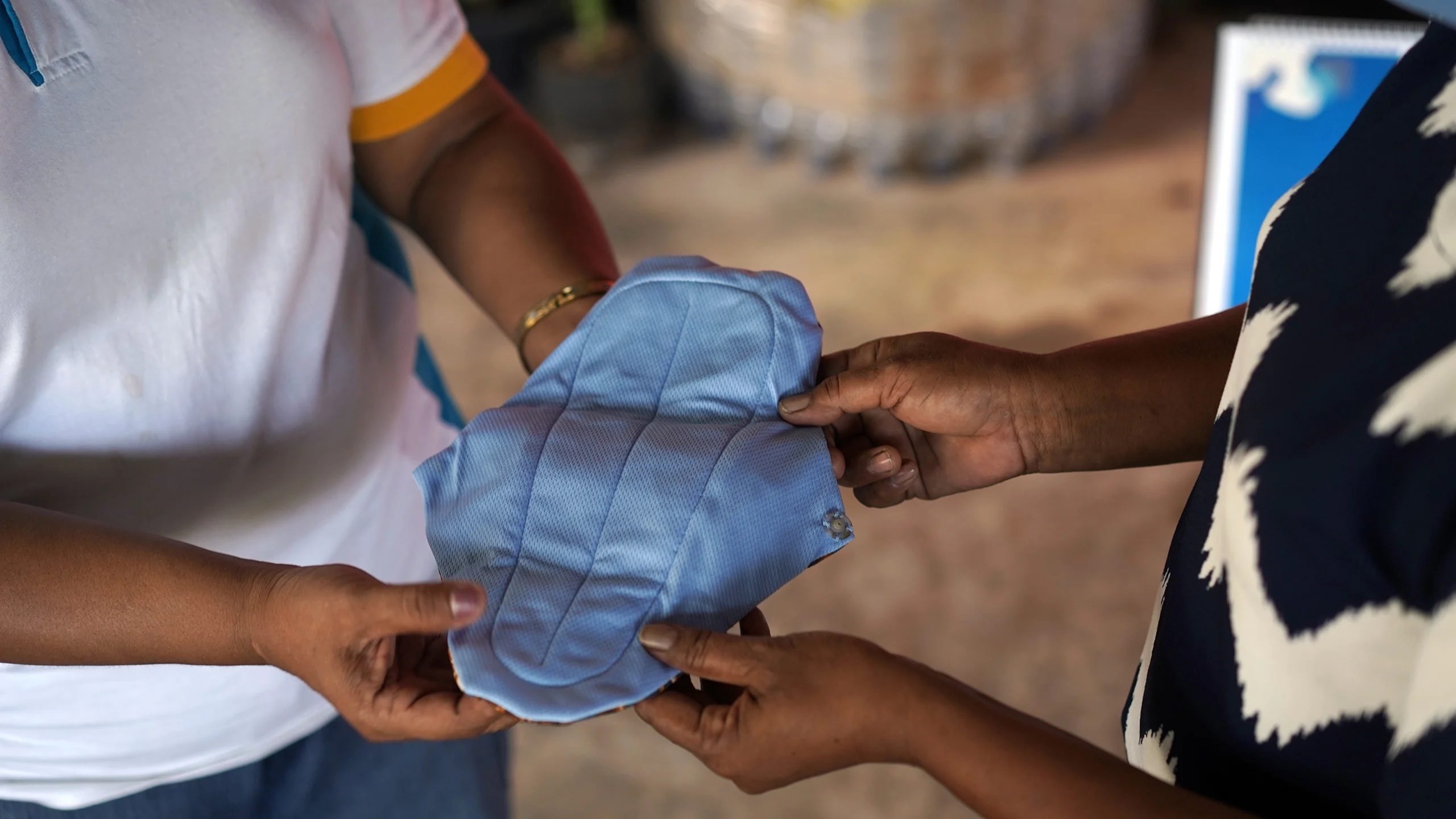
The rising costs of food, energy, healthcare and accommodation around the world have hit individuals, families and communities, pushing many into difficult decisions. For some, this means prioritising necessities over luxuries. For countless others, this means choosing between necessities – including menstrual hygiene products.
In over one-third of countries globally, the cost of living crisis has been exacerbated by conflict, political instability, climate change and acute food insecurity, culminating in a so-called “poly-crisis” and forcing almost 350 million people to flee from their homes.
For adolescent girls, young women and others who menstruate, the resulting loss of security and reduced access to water, income-generating opportunities, education, healthcare and other essential services compounds, and is compounded by, a hidden menstrual health crisis.
Drawing on data from 168 specialists across 44 Plan International country offices and four regional hubs, the global A Tough Period report highlights the impacts around the world of the current poly-crisis on the ability of adolescent girls, young women and others who menstruate to pay for menstrual health products (such as sanitary pads) and to access water to stay clean during their periods.
96.3% said compared to before the current poly-crisis, they are finding it harder to pay for menstrual health products.
51.6% reported that women and girls are using makeshift materials, such as used clothing, towels, old cloth, cottonwool and rags, while they are menstruating.
22.9% reported that adolescent girls are being sexually exploited in exchange for money to pay for menstrual health products – an activity which is not only dangerous in and of itself but can also lead to and exacerbate other risk factors, such as sexually transmitted infections and unwanted pregnancies.
"Rising inflation makes menstrual health products unaffordable for a lot of women and girls, and in a society of large-scale food insecurity and conflict, finding access to food and shelter outweighs other important needs like access to menstrual health products. Especially as menstrual health is seen as an issue of just women and girls, it is not seen as everybody's problem. This leaves a lot of women and girls dreading their menstrual periods and having to make do with unhygienic or uncomfortable solutions to handle their periods."
Gender and Protection Officer, Nigeria
"My country, Myanmar, has a military coup and ongoing conflict, and the situation is getting worse and worse. Increasing commodity prices, limited access or lack of electricity, limited access or lack of clean water, and the condition of internally displaced people because of conflict all contribute to the difficult access to menstrual health products and ability to stay clean during their periods."
Gender and Sexual and Reproductive Health expert, Myanmar
"Menstrual health materials have become so unaffordable for girls, and because of the drought, many girls have been forced to stay away from school and don’t have access to the menstrual health products that are provided by the government. So now we are seeing more negative coping mechanisms like exploitative sex, leading to high rates of teenage pregnancy"
Sexual and Reproductive Health Advisor, Kenya

"Menstruation is not seen from a perspective of rights and dignity. And this limits access to menstrual information, to diverse products, to being treated free of stigma and stereotypes. It is important that we expand from seeing menstruation beyond hygiene and that the idea that it is something dirty and instead start talking about menstruation and the human body from a rights-based approach. Let's integrate the feminist approach into menstrual education, because girls, women and people who menstruate have the right to live their menstruation with dignity and respect."
Gender Equality Advisor, Canada
Plan International Australia is currently distributing dignity kits to communities in need all around the world. A Dignity Kit has all of the essentials people who menstruate need to manage their periods during a crises, from the global hunger crisis, to conflict settings and climate disasters. The kit includes menstrual pads, body soap, washing soap for clothes, toothbrushes, shampoo and toilet paper. You can pay it forward and purchase a dignity kit, which will help a girl manage her period.
report authors
Dr. Leilani Elliott, Claire Knox, Hannah Pronesti and Jennifer Merryweather
illustrations
Niranjana Ghosh - @loveon35mm
report design
Hagan Fuller
